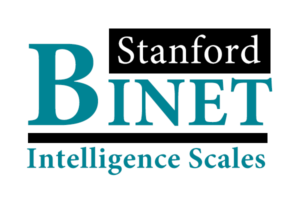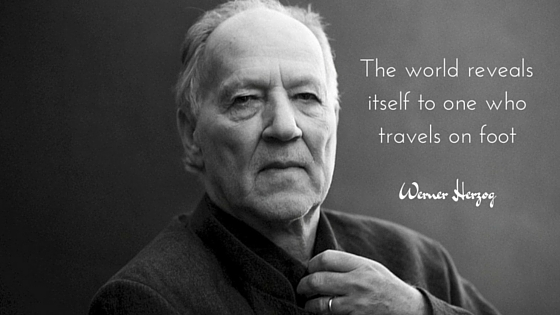
The simple answer to what is the big difference between highly successful people and you is… nothing. They have no advantages over you. There! Done. You can stop reading now. Problem solved.
Everyone searches for that one thing that finally gives them their desired advantage. The problem is that often they either don’t always know what their one thing really is, or they go after the wrong thing, typically someone else’s pursuit or goal, because, if they can do it, why can’t you?
The truth is that we all have different goals and objectives. The issue is that most of the time we comparatively judge ourselves based upon someone else’s financial status or net worth, not on their accomplishments.
Case in point, Marie Curie, Ruth Bader Ginsburg, Grace Brewster Hopper, Katherine Johnson, Amelia Earhart, Hedy Lamarr, Dorothy Vaughn, Rosalind Franklin, and Mary Jackson.
These women weren’t all wealthy or powerful, and many didn’t become famous until years later. In fact, you may not even know who some of them are (but you can always look them up).
Accomplishment is not what most of us desire these days. We usually seek out financial security first, then later the pursuit of wealth and/or fame.
Sadly, few people desire to altruistically accomplish something truly beneficial to the rest of us.
What is the real difference between where you are right now and where you desire to be? If it’s the ‘you’ that is part of both equations, then it is obviously not you, per se, but it might be something you’re either doing or… not doing.

You aren’t wrong, you’re not lacking, you are not less than, you are not dumber than anyone else. In fact, while you might think that money or status are what’s most important, many great accomplishments were achieved with little financial resources and sometimes little in the way of smarts or status.
The thing that separates these people who have achieved their higher objectives is vision. All of them have an idea that kept them pushing forward, no matter how hard it got, and whether or not others understood or acknowledged their ideas at the time.
In the beginning, no one took Bezos’ idea seriously. He could not get funding or support. Musk got pushback every step of the way. Srinivasa Ramanujan was initially ridiculed and scoffed at during his time at Cambridge. Coco Chanel was looked down upon as a silly little girl competing in a man’s world of fashion. Ruth Bader Ginsburg was a lone female attorney trying to get a foothold in a sea of male lawyers, with the gauntlet of “Why are you taking the place of a man?” held over her head with every position she applied for.
What they all had in common was an unwavering vision and conviction in their ideas.
On the one hand, you could say they were all highly intelligent, but as we are beginning to learn, intelligence and high IQ have nothing to do with genius.
In fact, this is where the real distinction resides, understanding the difference between intelligence and genius. So, let’s examine this for a moment.
Intellect, or IQ (intelligence quotient), is a measurement of one’s aptitude for navigating the waters of the rational mind. Every aspect of an IQ test has to do solely with areas of rational thinking.
The test questions focus on and include aptitude in logic, cognitive ability, critical analysis, analytical reasoning, conceptual thinking, spatial cognition, verbal and nonverbal subtests, quantitative reasoning, visual-spatial processing, working memory, and fluid perspective.
However, none of this accommodates for any form of measurement for creative, divergent, philosophical, or intuitive thinking, which so many geniuses use religiously.
In 1921, Stanford psychologist Lewis Terman used the Stanford-Binet Intelligence Scales to discover that intelligence and creativity don’t always go hand in hand, and at a certain level, intelligence doesn’t have much effect on creativity.

Whereas arts, sports, entertainment, fashion, design, and philosophy are all fields that rely on creative thinking. And while there can be a crossover into rational thinking in some areas, when someone shows creative proclivity in math, science, engineering, programming, and even medicine, the default standard is to associate these individuals with rational thinking since findings in these fields are based upon empirical conclusions.
Yet when we come across outliers like Einstein, Faraday, Newton, Curie, Pasteur, Farnsworth, Ramanujan, Brunelleschi, or Tesla, who bend or break the conventions of these fields by thinking in abstracts, they continue to show us that there is another way for breakthrough thinking, and we applaud their different thinking style as genius.
Creative aptitude refers to the artistic mindset, incorporating imagination, inventiveness, playfulness, and experimentation. The creative mind is allowed more freedoms and luxuries of nonabsolute thinking.
Visionaries, much like artists, have different styles based upon nothing more than imagination and unique perspectives. In terms of genius, there is no absolute right or wrong, but there is a propensity to explore, imagine, create, question, philosophize, and ponder, which are all related to the intuitive mindset.
Perhaps in this light, talent is ability, whereas genius is discovery.
The closest we have gotten to understanding genius resides within the intuitive, divergent, playful, and fantasy mindset while incorporating areas of creativity, imagination, curiosity, wonderment, philosophical contemplation, and inventiveness.
While there has been much debate in the history of science over the concerns of rationalism, and because science can initially use theory and experimentation to investigate, it ultimately requires a demonstration of certainty for a hypothesis. Yet until James Clerk Maxwell came along, Michael Faraday could not accurately prove his concept of electromagnetism mathematically, even though he turned out to be right, as with Srinivasa Ramanujan when H.G. Hardy later validated his equations and theorems, or when Sir Arthur Eddington verified Albert Einstein’s general theory of relativity.
And when five of the top-scoring members of Mensa (an exclusive international society open only to people who score at or above the 98th percentile on an IQ or other standardized intelligence test) were interviewed as to whether they considered themselves genius, they cited reasons like achievement, complexity, giftedness, athletic ability, artistic ability, pushing boundaries, and one’s aptitude to create something new as being the reasons that genius is different from intelligence, none of which has to do with an intelligence-quotient test.1

And at present, there are tests for IQ, personality, job aptitude, EQ (emotional intelligence), creative penchant, and even curiosity2; however, there is no test to accurately determine the level of one’s genius or even one’s proclivity for genius.
So, getting back to our original discussion, what do others possess that you do not? Nothing. But they seem to have developed a strong vision, a deep sense of conviction, a natural ability to swim in the waters of intuition, and a willingness to traverse a path unique only to themselves.
You, on the other hand, may be bogged down with daily work and time commitments, personal and/or family obligations, societal demands, and an internal drive to compare yourself to others. In this way, you can become overwhelmed, and unsure of your footing or direction.
Additionally, today’s tsunami of social media overwhelm has everyone fixated on becoming an influencer, getting rich off of social importance, amassing ‘likes,’ or any of the other empty-calorie pursuits that, in the long run, offer nothing of real value to society, or leave a lasting legacy for tomorrow.
And here’s the key. All those people who broke through, did so by remaining true to themselves, not comparing themselves to others, but pursuing a goal of their own making and vision, and staying the course when things got insurmountably hard.
Keep in mind that, in the beginning, society does not immediately embrace and adopt a new concept or idea. History, if it has shown us anything, has indicated that we are slow in our desire for change.
Change only comes when others see the merits of a new idea or concept and its future value. It took a long time before the use of kerosene transitioned to electric lighting, or horse and buggy morphed into automobiles, ice boxes became electric refrigerators, automation improved productivity, technology connected us to the world, and advancements in medicine which ultimately kept us healthier and living longer. But initially, all of these conceptions were met with slow resistance.
Another important observation keeping you stuck, or at least on the ledge, is that society has also conditioned us to believe that creativity has little value in the “real world,” hence, the reason arts and music are the first to be cut from school budgets.
Any artistic endeavor is viewed as non-essential, extracurricular, or frivolous, so society tends to place less importance on these pursuits.
Yet we still value a masterpiece at millions of dollars, pay ungodly sums to see overpriced plays like Hamilton, covet the higher-priced fashions like Prada, Chanel, Jimmy Choo, and Vera Wang, spend millions of dollars to watch top athletes or musicians, or invest millions into the next blockbuster adventure movie or radical tech idea.
The point is, society shouldn’t dictate which important or worthwhile endeavor you should pursue. Only you can decide that.
What the majority of people are really concerned about these days is having security. This is why creative pursuits are seen as riskier endeavors because they are not a sure thing. That’s understandable. But then, these days no job is a sure thing either.
If you just want to go for security, there is nothing wrong with that and no one is judging you. And it’s honorable. But if you desire to learn how to tap into and develop your lesser-mastered natural gifts and talents, then you should begin to focus on cultivating everything that is on the intuitive side of your thinking. Rational thinking is important and has value, as we’ve discussed, but the biggest breakthroughs remain the domain of the intuitive thinker. That is where genius will always reside.
Rational thinking will always have its place of importance, but if you choose to develop your intuitive genius, here are some important tools that can help you get there faster.
Pay attention to the following suggestions as a guideline to help you unleash your inner Einstein, Bezos, Gates, Mozart, Rowling, Ali, Hemmingway, or any other creative:
1: Don’t follow – We often look at highly successful people to figure out how they became so successful. The problem is that their journey is not yours. You are different. Leaders are just that… leaders. You think and act differently. You were brought up with different beliefs, values, and ideas, and therefore, when someone seems to have mastered the road to success, their tools might not apply to you. Yes, you can attempt to emulate what they did, but it will never be the same. Instead, find your own path – as they have – and build a foundation of skills and abilities that are unique to you and your goals.
2: Think Like a Four-Year-Old – What’s the greatest gift a four-year-old possesses? Their ability to pretend… The real distinction between adults and children is that adults will typically look for empirical conclusions or for the one answer. Adults tend to approach everything with preconceived notions of what might happen.
Children, on the other hand, don’t. They are filled with wonder, curiosity, and discovery, so everything is a new adventure and experience. In this way, they are more likely to experiment and not draw immediate conclusions. Their thinking remains open and divergent, and therefore they are more likely to come up with more creative ideas.
Instead of teaching this out of your children, learn from them. See the world as they do. Everything is fascinating and exciting to them. Lay down on the floor and look up at the ceiling or sky and just imagine. Be playful. Bend things that don’t bend. Pretend. This will become a most powerful tool. And resist the urge to draw immediate conclusions. I promise you that automobiles, airplanes, television, and even computers were once all nothing more than fantasy and imagination. Let that part of your mind grow and flourish. I guarantee you will surprise yourself.
3: Stay the Course – It’s going to get tough. It’s going to seem risky. It’s going to be lonely. And it’s going to look like you are on the wrong path. You will judge and second-guess yourself many times over, but this is the cave that Joseph Campbell talks about in The Hero’s Journey. This is where the biggest, most profound breakthroughs happen. And… this is where many give up. Fear can become a big hindrance. So can lack of finances. Both will challenge you. But use fear as a guide, kind of like your Spidey-sense. Don’t run from it, instead embrace it. Therapists are learning that when we go towards and confront what we fear most, we diminish its hold over us. And figure out a way to keep going when finances get tough. Tesla dug ditches because he believed so strongly in his vision. Einstein worked as a tutor, then as a clerk in the patent office. Faraday apprenticed to help support his family. Philo Farnsworth worked on his uncle’s farm. Do what you need in order to keep your vision alive and moving forward.
4: Go Divergent – We tend to look for the one answer or solve the problem. This is called convergent thinking, funneling down to the one, best idea. For problem-solving, this has practical merit. Yet for creating, breaking through, and disrupting old ideas and concepts, this is limiting thinking. Intuition, on the other hand, is divergent. This means that it can have many ideas, many opportunities, and many possibilities. Inventors tend to think out of the box. They come up with unique ways to approach something. When you put aside your need to look for a solution, you allow yourself the opportunity to discover something new and unique. Charles Babbage, creator of the Analytical Engine, could only see one application for his device, faster calculations on a larger scale. It took a young, imaginative girl, Ada Lovelace, who envisioned the future possibilities of his work, by seeing ways to transform those calculations into music and images. By keeping her mind divergent, she was able to see possibilities far beyond the originator’s initial intent. We too embraced this idea and now computers can perform many creative and artistic functions well beyond their initial purpose to calculate and process data.
5: Play – Adults rarely or never take enough time to play. And often, they only do so to rejuvenate so they can get back to the grueling demands of work. It’s only later, in their “golden years” that many say they wished they had taken more time for themselves. Nowadays, workplaces are catching on to what they have been sorely lacking for so long. Play has now become a powerful part of their practices to help employees reenergize their minds and bodies. In this way, they become more invigorated, more motivated, and more connected. Play also conditions and shapes the mind to become more open, plastic, philosophical, and imaginative.
6: Connect – One of the most important tools that people often overlook is the value of connection. Connecting to other people and connecting to the planet. Staying in your little world of comfort does not provide you with the better tools, thoughts, and ideas that traveling and meeting new people can offer. You never know where the next idea might spring from and venturing into new territory, new situations, and new opportunities can offer the biggest breakthroughs. Uber, Airbnb, Zipcar, and WeWork were all ideas that came from traveling and connecting. Travel offers us new ways to look at the world, and more importantly, to challenge our own current assumptions and beliefs. Connecting with other cultures can spark new ideas, open us up to new points of view, and invigorate our ingrained, stifled ways of thinking.

It’s said that we only use ten percent of our brains. The truth is that you only utilize a portion of your mental capabilities and opportunities, mostly because you were taught to do so rationally.
When we were younger, we were allowed to play, imagine, and fantasize, but only for a limited time. And except for a very few rare parents who saw the merits in cultivating both the rational and intuitive mind, the majority of us were taught to forgo the intuitive and rely primarily on our rational mind in order to fit into societal standards.
Yet we still continue to marvel at the outliers. We applaud them, study them, admire them, and even attempt to emulate them. And we refer to them as genius. However, a missed opportunity is never too late. There is never a wrong or bad time to begin to cultivate your intuitive-genius mindset.
Albert Einstein took over ten years to perfect his theories; David Seidler was seventy-three when he wrote The King’s Speech; Charles Darwin was fifty-one when he published The Origin of Species; Julia Child was forty-eight when Mastering the Art of French Cooking was published; Abraham Lincoln was fifty-one when he became the sixteenth president of the United States; Winston Churchill was sixty-six when he first became prime minister of the United Kingdom, then again at age seventy-six.
And the list goes on: Stan Lee, Vera Wang, Toni Morrison, Eric Yuan, Martha Stewart, Henry Ford, Arianna Huffington, Charles Darwin, Nelson Mandela, Ian Fleming, J.R.R. Tolkien. And that’s still only a few more.
No one is telling you to jump ship and give up security and comfort. But I am suggesting that you may not be utilizing your full mental potential, and this is an opportunity to begin to shape the part of your mind where your true genius resides. The tools are there for you to use right now. And it’s up to you what you do with them.
“Intellectuals solve problems. Geniuses prevent them.” ~ Albert Einstein
Footnotes:
1: https://nautil.us/how-is-a-genius-different-from-a-really-smart-person-235139/
2: Tests:
Intelligence Quotient Test: https://stanfordbinettest.com/
Myers-Briggs Personality Indicator: https://www.mbtionline.com/en-US/Products/For-you
Career Aptitude Test: https://www.princetonreview.com/quiz/career-quiz
Emotional Quotient (EQ) Test: https://www.idrlabs.com/global-eq/test.php
Creativity Type Test: https://mycreativetype.com/
Curiosity Quiz: https://curiosity.britannica.com/curiosity-personality-quiz.html